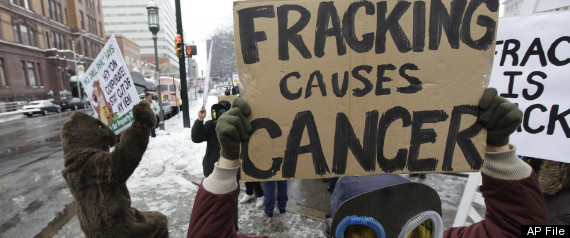Many people wonder today if the potential long-term contamination of the environment is worth the natural gas that is going to be recovered by using hydraulic fracturing, or fracking. For some time now, analysts have been suggesting the “energy-independence” being put forth by the oil and gas industry is kind of like a shell game where the investors will ultimately be the losers and energy independence just won’t come to pass.
If you want to read all the nuances to the shale gas plays and all the details why they won’t pan out to be America’s answer to energy independence, just spend some time reading Arthur E. Berman and Lynn Pittinger. Here I’ll just hit some high points:
According to Berman, there’s a number at the root of the issue and it has encouraged many to exaggerate the amount of recoverable gas there is in shale, and caused others to be totally confused about it. The confusion reigns because of the apparent widespread misinterpretation of a Potential Gas Committee Report in 2009 that expressed 1,836 trillion cubic feet of “technically recoverable” natural gas in the U.S. shale plays. People have been referring to that number as being a natural gas “reserve,” when in fact it is not a reserve and it includes recoverables other than natural gas. The actual amount of “probable” shale gas recovery is more like 147 trillion cubic feet and according to Berman’s report that’s nowhere near a 100-year supply.
But turn that larger number loose with natural gas frackers and you have the potential for accounting anomalies. According to Allen Brooks, the managing director for Parks Paton Hoepfl & Brown Energy Investment Banking, LP when referring to the E&P industry, it is “one of the most susceptible to manipulation because so much of it is based on estimates. For an E&P company, virtually all its assets are located down a hole in the ground.” He went on to report in that 2009 article that analysts were beginning to question the true productivity, and longevity, of the wells and that “doubts are emerging about how much of the hype about these gas shale plays can be believed.”
Indeed there is evidence that sometimes the oil & gas industry is not as honest as it could be in its accounting reporting practices. In their paper Do Models of Discretionary Accruals Detect Actual Cases of Fraudulent and Restated Earnings? An Empirical Analysis, the authors Jones, Krishnan and Melendrez analyze the incidence of financial reporting fraud across a number of industries. The oil & gas industry had the fifth highest incidence of financial fraud out of 26 named industries. In that report, 75 percent of the firms committing fraud were doing so by overstating revenues followed by 61 percent for accounts receivable and 42 percent overstating expenses. All three of those practices could certainly be good for the bottom line of a company drilling in today’s natural gas plays.
So if the estimates fracking companies are using to express the anticipated amount of natural gas they’ll recover from the shale are based on an inflated number to start with, and if we add in some footloose manipulation of the accounting, the house of cards is set to fold. All you have to add is the continuing decline in production of wells, that even now is being noted, and/or a drop in gas prices and you have companies in trouble.
Even though this blog is about contamination, you have to follow the money to understand why contamination happens and to see how persistent it might be. So beyond the losses that investors all over the world are going to potentially take, there is the issue of the environmental damage that will never be cleaned up. Once the rigs stop drilling because the wells run dry 10 years earlier than projected, after producing far less gas than was projected, the costs of cleanup will eclipse the net worth of the companies that did the drilling. What about all those slurry pits and tanks filled with fracking fluids left behind for the next well, or some cleanup planned for the future? Bankruptcies will follow [as in this case] and guess who will have a dirtier environment and be left holding the bag for cleaning it up?


No comments:
Post a Comment